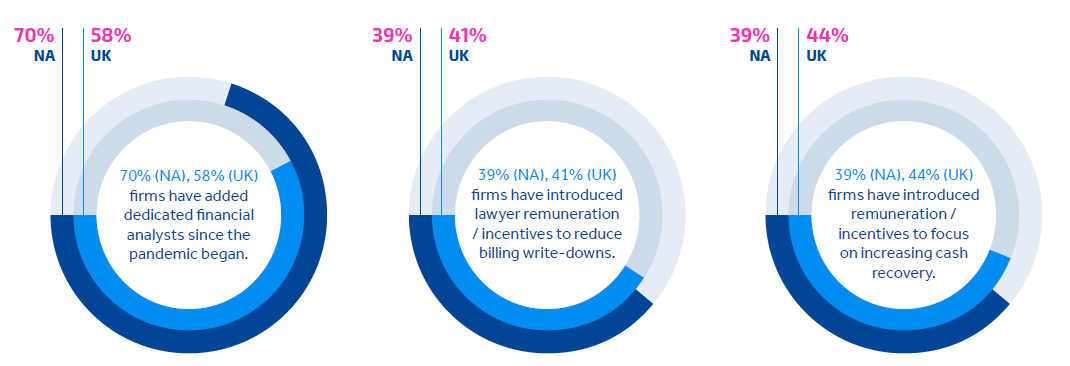Combining new financial expertise with lawyers incentives is helping firms make the cultural changes required to achieve a more profitable business but the question remains - are individuals empowered with the information required to support their financial goals?
While wage inflation is a board-level concern, it is encouraging to see that law firms are not shying away from adding the expertise required to achieve systemic change. The majority of firms (70% NA, 58% UK) have hired new dedicated financial analysts over the past 18 months. This adds to the expertise confirmed in the BigHand Pricing and Budgeting Report, which revealed 70% (NA), 61% (UK) firms have hired new dedicated Pricing resources in the last 18 months and 23% (NA), 27% (UK) plan to recruit a pricing specialist in the next two years.
Adding these new strategic roles to the legal marketplace is a clear indication of the shift law firms have made in recent years from the ‘practice of law’ to the ‘business of law.’ Firms are also evolving towards a far more commercial culture, an environment in which lawyers are encouraged to be far more aware of profitability and financial aspects of client relationships.
Firms are using lawyer remuneration to nudge this change – 39% (NA), 41% (UK) firms have introduced lawyer remuneration / incentives to reduce billing write-downs; and 49% (NA), 50% (UK) plan to do this over the next two years. In addition, 39% (NA), 44% (UK) firms have introduced remuneration / incentives to focus on increasing cash realization; and 46% (NA), 43% (UK) plan to do this over the next two years. The theory is strong – but how are lawyers going to meet new financial objectives without an in depth understanding of current performance?








